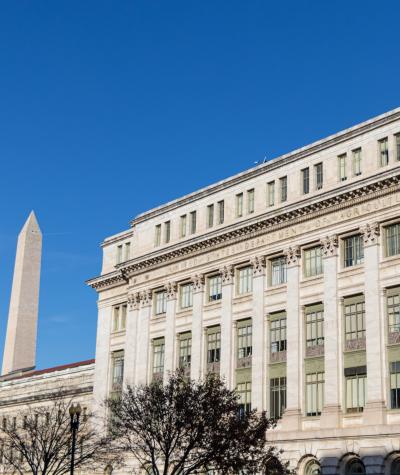President Donald Trump ended his first week in office by firing inspectors general (IGs) across 17 different federal agencies, effective immediately.
This blatantly illegal and incredibly concerning mass firing removes the only independent offices within agencies designed to protect taxpayer money and root out corruption, fraud, waste and mismanagement.
Following Trump’s recent revival of Schedule F and its attempts to politicize the nonpartisan workforce, the role of independent watchdogs in our federal agencies is critical if we want to prevent corruption in this administration.
Preventing corruption and calling out ethical violations was a key part of the role of IGs in Trump’s first term — and potentially why he’s angling to get rid of them.
Inspectors General Explained
IGs exist to protect taxpayer money by rooting out corruption, fraud, waste and mismanagement. One way they do so is by conducting investigations into potential violations of ethics provisions or conflict of interest laws.
IGs were first introduced in the executive branch when President Jimmy Carter signed the Inspector General Act of 1978. IGs are expected to act independently — while they are under the supervision of their agency head, they cannot prevent or prohibit an IG from conducting an investigation.
Furthermore, IGs were meant to act independently from the president. The president can only remove the IGs he appoints after he provides 30-days notice to Congress.
Trump’s Questionable Track Record with Inspectors General
Allegations of unethical and illegal conduct by Trump’s Cabinet during his first term triggered IG investigations into at least eight Trump appointees and their conduct: including his secretaries of Transportation, State, Veterans Affairs, Interior, Housing and Urban Development, Health and Human Services, and Commerce.
These investigations delved into numerous ethics issues, such as failing to avoid actions that would create the appearance of unethical conduct, violating conflict of interest laws, misusing positions to benefit family members, spending federal funds on private flights, using government employees for personal tasks, and lying to IG investigators.
As a result of these investigations, Trump threatened IG independence by dismissing or replacing five IGs within six weeks. Two of those IGs were actively investigating members of Trump’s Cabinet — Secretary of State Mike Pompeo and Secretary of Transportation Elaine Chao.
One IG had just released a report about shortages in hospitals during the COVID-19 pandemic.
Most notably, IG Michael Atkinson was dismissed after he proceeded on a whistleblower complaint about Trump’s Ukraine call with Russia, which led to his first impeachment.
We Need Independent, Nonpartisan Accountability in the Executive Branch
Now in his second term, Trump’s decision appears to be part of an effort to replace independent IGs with individuals who may be more inclined to look the other way when the president’s appointees are violating ethics laws.
If Trump’s new IGs fail to investigate potential violations of the law, some of the most powerful public officials in the government may no longer feel committed to upholding the high ethics standards their positions demand.
The public deserves to be protected by an independent office whose sole job is to make sure that officials are serving the public interest and not their own interest, including good stewardship of taxpayer funds.
President Trump broke the law when he fired these inspectors general and will now have even less oversight and accountability at the beginning of his administration.
No matter what, the role of IGs and their critical check on the executive branch must be affirmed, and the president and Senate should work quickly to ensure that these IG roles are filled.
Under an administration determined to undermine the rule of law, CLC will continue working to hold this administration accountable and identify potential conflicts of interest wherever they arise. We are prepared to uphold and strengthen executive branch ethics at every turn.

